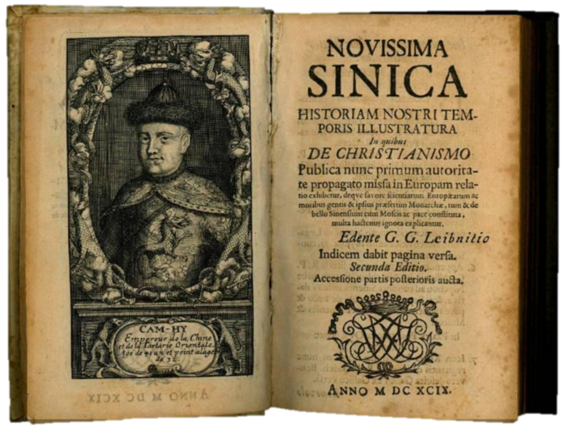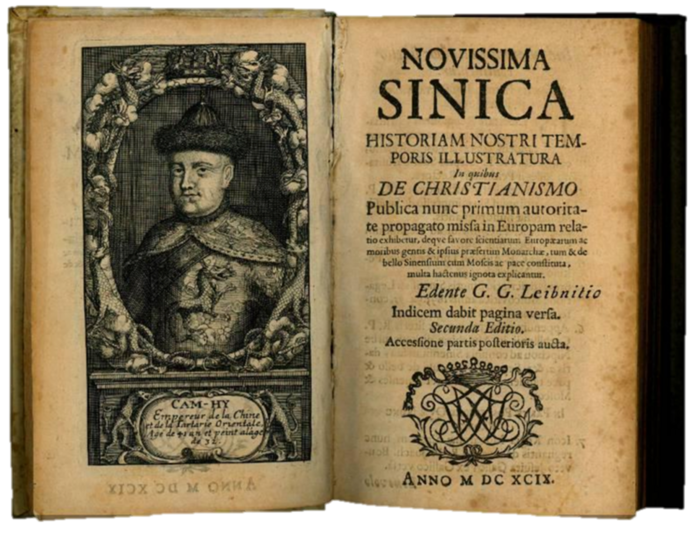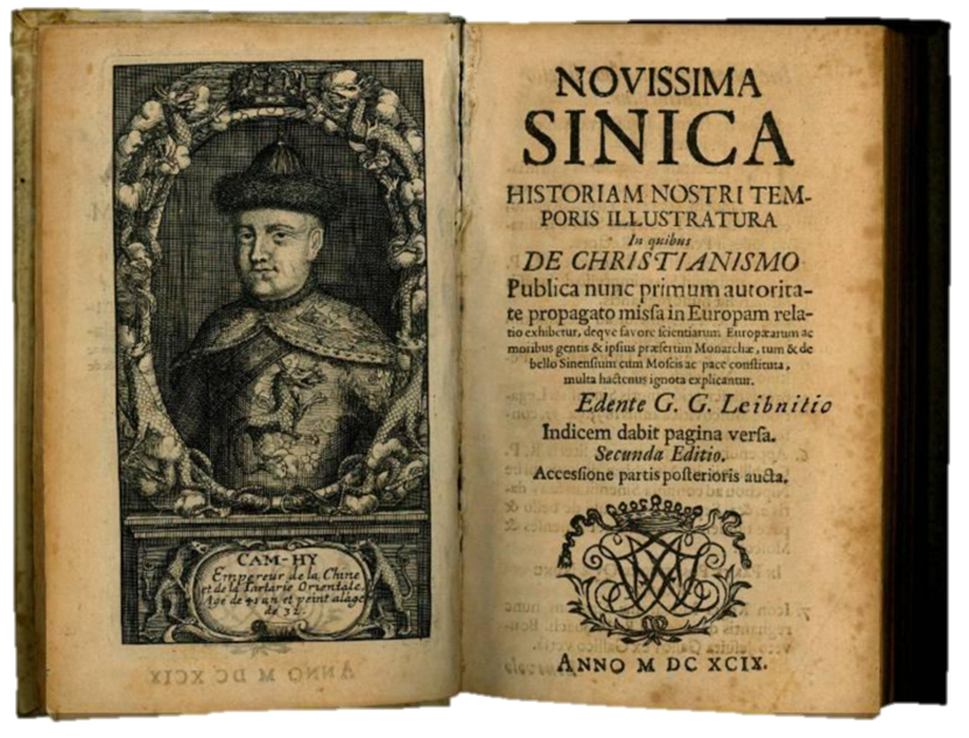In 1697, Leibniz jauntily wrote to Electress Sophia Charlotte, who resided in Berlin, that he intended to put up a sign on his door saying ["bureau d'adresse pour la Chine"] (information bureau for China). Six months after the publication of his paper Novissima Sinica [The Latest News about China], he was bombarded with questions regarding the faraway land and its people. In his lodgings on Schmiedestraße in Hannover, he received lists of questions several pages long and from all parts of the world to be forwarded to China.
At the turn of the 14th century, Marco Polo and the fantastic accounts of his travels in the unknown and vast Middle Kingdom sparked a lasting wave of fascination for China among Europeans. In the 17th and 18th century, China embodied many qualities that people in Europe yearned for: legendary wealth, as well as sophisticated art, culture, science and medicine - a 'Europe of the East'. Across Europe, China-themed illustrations - or what Europeans considered to be Chinese - adorned tapestries, painted furniture or porcelain. In royal gardens in the North German Plain, people strolled past Chinese tea houses and pagodas.


 ©
GWLB
©
GWLB
In 1689, while conducting research on the House of Brunswick in Rome, Leibniz became acquainted with Father Claudio Fillipo Grimaldi, the head of the Jesuit China Mission, who had recently returned from Beijing. Leibniz was eager to learn as much as possible about China and asked many questions: "Is the ginseng root as powerful as commonly assumed? How do the Chinese make green fireworks? How do they collect silk cocoons? Does straight wood as sturdy as iron and suitable for tube production truly exist? Are the Chinese familiar with the Pythagorean theorem? What do we know about technical machines and paper production?" and many more. The meeting with Father Grimaldi and his friars resulted in a lively exchange of knowledge and extensive correspondence. Louis XIV too had sent some Jesuit missionaries to Beijing in order to promote Christianity and establish profitable trade relations. The Kangxi Emperor [康熙] (1654-1722) tolerated the scholarly padres at his court while being open to Western knowledge. He even took lessons in astronomy, anatomy, mathematics and warfare. In turn, some discoveries made in China stirred up the European world quite a bit, such as the fact that Chinese civilisation and culture is thousands of years old. As stated in the Bible, the entire humankind descended from Noah's three sons called Ham, Shem and Japheth, who repopulated the Earth after the Deluge - according to the biblical calendar circa 2348 BC. However, according to information the padres found in ancient Chinese writings, the legendary emperor Fuxi [伏羲] already ascended the throne in 2952 BC, followed by the three dynasties Xia, Shang and Zhou. The missionaries were at a loss to explain this and had to consider whether the oldest Chinese rulers were indeed direct descendants of Noah.
Instead of arguing about the "age of the world", Leibniz focused "on learning about these and other great things, that have not been revealed to us [...] which open up a whole new world of possibilities for science".
He was passionately interested in Chinese characters. Was it possible to reconstruct an original script with semantic meaning out of the 100,000 characters?
For quite some time, Leibniz had been searching for a universal set of characters ["characteristica universalis"], that could be used internationally and where characters could be combined in order to "perform calculations and prove problems just like in algebra and arithmetic operations." For his comparative linguistic research on the origin of languages, Leibniz requested many written samples of translations of the Lord's Prayer from all parts of Asia. Moreover, he made a special effort to convince Tsar Peter the Great to build a safe overland route (approximately 8,000 km) between Moscow and Beijing.
Leibniz experienced a setback when he attempted to use his discovery of the binary code - where 0 and 1 represent all numbers - to persuade the Chinese Emperor who was "very enthusiastic and knowledgeable about the science of numbers" of the Christian creation narrative. According to Leibniz, "nothing was more plausible than stating that the Lord created everything out of nothing without using any existing matter and that there are only two original principles, God [=1] and nothingness [=0]." The response from China was rather disappointing: Since the Emperor was losing interest in the matter, it would be better to wait for an appropriate moment to "tell him about your fine discovery given as evidence for the doctrine of creation".
In contrast to most of his contemporaries, who focused on preaching the gospel, Leibniz viewed the discovery of China's sophisticated culture as an important opportunity. He was convinced that the mission should use scientific research to contribute to God's glory and practice altruism for the well-being of humankind. For it was in the interest of all that an "exchange of ideas and knowledge is established between nations living so far away from each other on opposite ends of Eurasia, an exchange that is much more preferable than any form of trade." Unlike most of his contemporaries, Leibniz considered cultural transfer a mutual activity. He proposed that China should send "cultural missionaries" to Europe, so that Europeans could benefit from Chinese wisdom. Today, more than 1,300 Chinese study and teach at Leibniz University Hannover - or, in Leibniz's words: "Let us exchange our insights in order to kindle light with light!"








